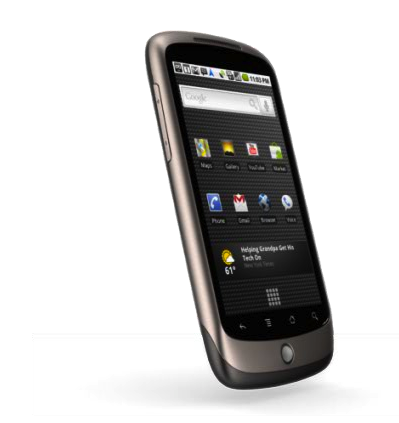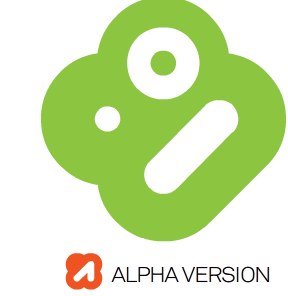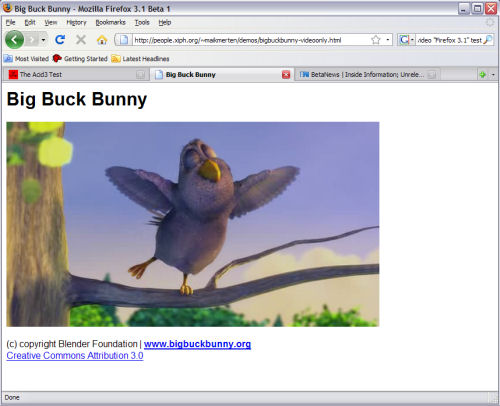
Windows XP WGA validation 'spyware' case dismissed
On Monday, a US District Court in Seattle dismissed with prejudice a class action case originally brought by Los Angeles native Brian Johnson in the summer of 2006. Johnson's claim at the time was that, when Windows XP used Microsoft's Windows Genuine Advantage (WGA) feature to validate his rights to use a newly purchased XP, Microsoft not only employed software not covered by the end-user license agreement, but used it to transmit his personal information to Microsoft against his wishes.
His allegation was that XP violated California's and Washington state's statutes regarding spyware -- separate software that transmits personally identifiable data back to a source.

No solution yet for SSL/TLS security hole besides turning renegotiation off
A defect in the protocol that secures monetary exchanges and other private transactions throughout the Web, discovered by wireless security engineers last August, continues to go unfixed as vendors work towards a solution. It can only be described as miraculous that a working exploit hasn't yet been detected for a security hole that hid in plain sight ever since Transport Layer Security was developed.
The problem was inadvertently made public last November. In short, it has to do with the transition Web sites make between the older Secure Sockets Layer protocol and the augmented TLS. During the transition process, the Web sites leave one protocol, but have to remind each other what they were transitioning from and to -- like asking one another, "What were we talking about again?" The question and answer get sent in the clear, making it easy for a man-in-the-middle to spoof the site with the answer.

The Windows 7 battery life issue: What's making notebook batteries die?
Since Windows 7's final release last fall, some testers have been reporting that dual-boot network computers seem to consume power more efficiently running Windows XP than Windows 7. One example came last October from JKOnTheRun's Kevin C. Tofel, who saw his own Toshiba notebook battery die 45 minutes sooner running Win7 than Windows XP. But even then, Tofel was skeptical of a few curious facts, including that Toshiba changed its power management utilities.
Since 1999, the system that has reported battery capacity and relative power levels to the operating system has been the Advanced Configuration and Power Interface (ACPI), developed by industry leaders such as Intel, Phoenix Technologies, and Toshiba. But ACPI was developed with the BIOS in mind; and as PC architecture evolves, as even Phoenix will readily concede, the conventional BIOS is becoming an historical remnant. And history has also shown that as a lithium-ion battery degrades, its capability to report its own health degrades with it. Only now have batteries become capable of reporting their capacity -- how much charge they can hold -- as compared to their manufacturers' specifications.

Success: Google's Nexus One shipping support line takes tech support questions
11:35 am EST Tuesday, February 9, 2010 · In a test of Google's willingness to take customer concerns this morning, Betanews Editor-in-Chief Nathan Mook -- a new Nexus One owner himself who has not experienced either the 3G connectivity problem or the touchscreen tracking problem -- contacted the Nexus One shipping support line with a technical concern. After getting off the phone with a live Google support staffer in San Francisco, Nate reported very positive results.
The problem Nate was having, he says, is minor: The phone's automatic brightness isn't working well, remaining too dark when auto-brightness is turned on. Plus, the phone's touch-sensitive panel buttons at the bottom appear non-sensitive if you touch too close to the bottom.

Netflix to FCC: NBCU + Comcast could bypass net neutrality
In a world where Federal Communications Commission Chairman Julius Genachowski's six principles for net neutrality are enforced, everyone who makes a living on the Internet could conceivably be "unburdened by the unnecessary intervention of network operators or government regulators." The exception would be when a pipeline provider such as Comcast merges with a content provider such as NBC Universal, to make certain classes of content viewable online only when it designates. That's the opinion of attorneys for video rental service Netflix, in a filing last month with the FCC and recently made public.
"Netflix believes that the codification of the existing network neutrality principles, together with the addition of nondiscrimination and transparency, create an effective framework for preserving an open Internet," begins Netflix' filing, written last January 14 (PDF available here). "These rules will allow all parts of the industry -- network operators, consumer electronics manufacturers, and edge providers of content, applications, and services -- to continue to innovate at a rapid pace, unburdened by the unnecessary intervention of network operators or government regulators."

Stymied by continuing Nexus One 3G issues, Google blames the environment
For the most part, last week's over-the-air software update to Google Nexus One phones, which was intended to address the 3G connectivity issues with certain versions of the phone's firmware (with a gift of added multitouch), appears unsuccessful for many commenters to Google's support forums. Very few customers reported improvement, and some who did in the early going are now saying their flip-flop problems between 3G and EDGE have returned.
Meanwhile, although Nexus One manufacturer HTC has typically referred phone issues to Google -- the self-proclaimed "vendor of record" when the device premiered -- as of now, it has declared the issue resolved, suggesting that customers still experiencing problems "restart their Nexus One device to restore their T-Mobile data connection."

DOJ: Google can't leverage class action to settle with future authors
Last September, the US Justice Dept. objected to the proposed terms of a settlement between Google and the Authors' Guild, which would have enabled Google to publish out-of-print titles in its Google Books catalog. The theory of the settlement at the time was, if authors or rights holders are given enough time to respond to a request to stand up for their rights -- say, at least several months -- and they don't do so, then that's as good as acquiescence.
Since that time, on orders of US District Judge Denny Chin, the two disputing groups have worked on a revised settlement. But yesterday, the Justice Dept. -- representing the United States' interests in the matter -- filed a second objection to the settlement. Although Google and the Authors' Guild made progress, US attorneys say, Google still appears to take the position not only that it can strike bargains on behalf of copyright holders, but that only Google can do so -- a position which they say the law does not allow them to take.

Boxee: We didn't steal anything from Hulu
During the few comments he was asked to make during his testimony before the House Telecommunications and Internet Subcommittee earlier today, NBC Universal President and CEO Jeff Zucker was asked by Committee Chairman Rep. Rick Boucher (D - Va.) whether Hulu -- a video Web service co-owned by NBC -- intentionally blocked the ability of Boxee's media center application for PCs to replay Hulu videos. Rep. Boucher's question was by way of ascertaining whether a combined Comcast + NBCU entity would routinely block competitors' access to programming it generated.
Zucker responded: "What Boxee was doing was illegally taking the content that was on Hulu without any business deal. We have several distributors...of the Hulu content that we have legal distribution deals with, so we don't preclude distribution deals. What we preclude are those that illegally take that content."

MPEG LA won't charge free streamers to use H.264, will charge for selling codec
While Google, Vimeo, and others continue to experiment with H.264 as the codec of choice for HTML5 Web browser-embedded video, there's still considerable debate over whether W3C -- the caretakers of HTML and other Web standards -- should allow Web proprietors to embrace standards that are not essentially free. MPEG LA, the rights holder for H.264 technology and its licensing agent for the Internet Broadcast AVC Video portfolio, recently said it will not charge royalties for the use of H.264 encoding in video that's delivered free -- specifically, for any video for which the creators or servers are not compensated -- at least until the end of 2015 (a date corrected from the end of 2016, which the licensing agency originally announced).
Does that mean H.264 is free for streamers? In a clarification for Betanews this afternoon, MPEG LA spokesperson Tom O'Reilly said it may very well be free...for those who use the codec for that purpose. But not for those who sell the encoding software that utilizes the codec.

Net neutrality objections fade, Congress appears likely to pass NBCU + Comcast
In the end, it was one lone congressman who raised the subject of net neutrality, with respect to access to content over the Internet, as more than a passing reference, or by way of suggesting that certain topics be ignored altogether: Rep. Ed Markey (D - Mass., who also chairs the Energy and Environment Subcommittee), author of the Internet Freedom Preservation Act still being deliberated in Congress, voiced his skepticism over the viability of the proposed acquisition of NBC Universal by a new unit of Comcast, saying he didn't see any guarantees that the current class of over-the-air programming offered by NBC would not be transferred to Comcast pay-TV services such as TV Everywhere.
But with NBC being the butt end of jokes on TV everywhere, and elsewhere, with respect to its dismal standing in audience ratings and its poor handling of the recent "Tonight Show" reprogramming kerfuffle, the objections raised by Rep. Markey might not have mattered much. In some folks' mind, why would anyone want to pay for NBC shows anyway?

H.264 licensing body won't charge royalties for HTML5, other Web streams
One of the key objections Mozilla and its supporters have had to the use of H.264 codecs for HTML5 video -- the built-in decoding system being developed for the next edition of HTML -- is that it's proprietary technology. As such, there are no guarantees against the rights holders to that technology staking claims to it, and charging money for it...and there may not be much protection against others who believe they have claims on it, to test their theories in a full-scale patent infringement trial.
Up to now, the MPEG Licensing Authority (MPEG LA) has not been charging royalties to anyone, including streamers and the viewers of streamed content, for the use of H.264 encoding and decoding for the specific purpose of delivering free streams. That way, for example, the participants in YouTube's and Vimeo's current tests of H.264 in HTML5 -- Web browser-based video without any plug-ins -- can proceed without incurring charges.

Early mixed results for over-the-air 3G fix for Nexus One
This morning, Google began deploying an over-the-air software update for its Nexus One phones, including the addition of true pinch-to-zoom multitouch and synchronization features for Google Maps, as well as a purported fix for poor 3G connectivity for at least one version of the phone's firmware. In the early minutes after deployment, there appeared to be some hope as some users of Google's support forums reported improved signal strength.
But that was in the early going. As the hours passed, customers were correcting their existing reports, and others were adding new reports, of only marginally improved 3G speeds at best. Connectivity appears to have improved for some -- getting at least some 3G where there was none before -- but that's not a complete solution for them yet. What's more, troubles with 3G signals being completely dropped when the phone is touched by human hands -- a problem reported by a minority of users, but still a sizable number -- seemed to continue.

It's a three-way race: Opera preview clings to lead over Safari 4, Chrome 5
Download Opera 10.5 "Pre-alpha" for Windows from Fileforum now.
This week marked Google's first release of a development build browser called Chrome 5, which contains some not-yet-fully-implemented features including the browser's first personalized security settings. In recent months, Chrome's dev build has been the standard-setter for performance in Windows, with scores in Betanews tests that rise by as much as one point -- one relative quantum of IE7/Vista horsepower -- per month.

Proposed settlement in Facebook Beacon case draws fire from advocacy groups
Just over two years ago now, Facebook began deploying a behavioral tracking service it called Beacon, which automatically enabled the tracking of Facebook users' behavior, but shared that data with advertising partners. It wasn't an "opt-in" service by anyone's definition, and after Facebook took down most of the service, customers filed a class-action suit against the social network.
In a proposed settlement last September, Facebook is opting to use its own money -- some $9.5 million -- to establish a fund for the creation of a foundation to help make Web users more aware of their privacy rights, and how they can improve their online safety. It's what the law calls a cy près settlement, named for an old French phrase that literally means, "the next best thing."

Commercial Windows Azure is now live, along with cloud-based storage
Late yesterday afternoon, right on schedule, Microsoft announced the "general availability" of Windows Azure, its cloud-based hosting service for .NET applications. With a release like this, "GA" is somewhat peculiar, especially since the service has actually been in operation for several months. But it does mean that a ribbon has been cut, and from now on, new accounts are being signed up as commercial licenses. Old accounts are being given the warning to either convert or jump ship.
From this point on, prospective Azure customers will be given the opportunity to experiment with a limited amount of storage and transaction bandwidth, for a limited time. From now until July 31, testers will be allowed free access to 25 hours of a small compute instance with 500 MB of storage, and 10,000 transactions on one SQL Azure database (which will only be free for the first three months). Usage above that level will be charged at the regular rate of $0.12 per hour plus $0.15 per GB per month storage, and $9.99 per month per 1 GB database.

